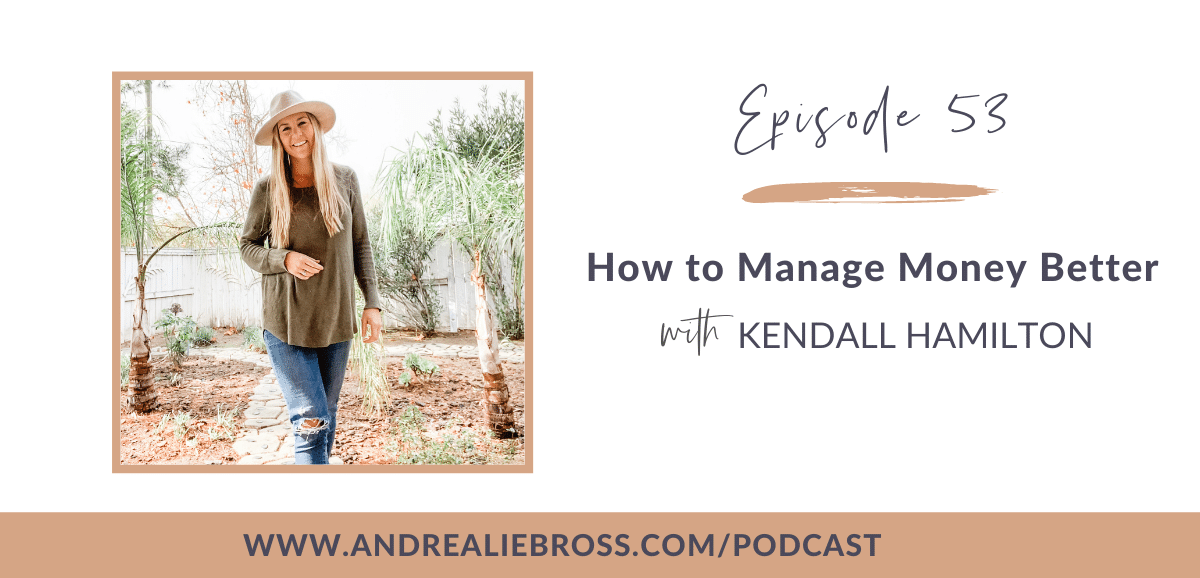53: How to Manage Money Better with Kendall Hamilton
Do you feel like you don’t know where your money is going? Do you feel like you never spend any money on yourself and yet your savings never grow?
Our special guest, Kendall Hamilton, knows exactly how to break that cycle, so she is joining me in this episode to cover all things money.
Money is one of our most valuable resources, so I think this is a worthy topic to bring a guest expert on the show for. Kendall has a way of making it all seem simple and not stressful. She believes that you can meet your financial goals without having to live in scarcity.
In this episode, she’s introducing you to some of the mindset issues that are holding you back from meeting your financial goals and showing you how to overcome them.
Kendall is a money empowerment coach helping $100k earners pay off debt fast and grow a savings account they can be proud of. After paying off $30,000 debt in just 12 months (while vacationing in multiple destinations), Kendall realized that she didn't have to cut expenses to get ahead with money. She aims to help her clients create a healthy relationship with money that results in a massive transformation of their finances, including thousands of dollars in debt paid off, thousands of dollars saved, and more confidence than ever in their finances.
In Today’s Episode We Discuss:
- Living in alignment with what you value
- How to save without living in scarcity
- Getting past the mental blocks that are keeping you from success
- Changing the messages you are sending yourself
- What you really mean when you say “I can’t afford that”
- Giving your budget enough time to work
- How to talk about finances with your spouse
- Getting on the same page as your spouse
- Why debt is neither good nor bad
Kendall has fantastic insights to share about how the way we manage money is a reflection of what we value. I hope that you value yourself and put yourself first.
Is money one of the things keeping your life from rolling along? Reach out and schedule a call with me at www.andrealiebross.com/consult so we can get your life rolling again! You are worth it.
Head over to www.andrealiebross.com/listen to listen to this episode and previous episodes on your favorite podcast platform!
Resources Mentioned:
Follow @_kendallhamilton_ on Instagram
Other Episodes You'll Enjoy:
50: What to Do When You Can’t Catch a Break
51: Client Success Story: How Life Coaching Can Help You with Binie Klein
[fusebox_transcript]

